
views
“Soy de…” (“Soy day”)
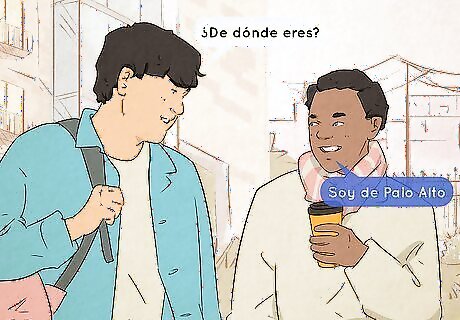
“I am from…” is the most typical response to this question. You can say you’re from a city, state, or country, just like in English: “Soy de Palo Alto,” “Soy de California,” and “Soy de los Estados Unidos” are all completely correct. In Spanish, personal pronouns like “I,” “you,” or “she” are often dropped from speech, since verbs already tell you this information by changing form depending on their subject. You might hear someone say “Yo soy de California.” Using “yo” (I) in this sentence is correct, but not strictly necessary.
“Nací en…” (“Nah-see ehn”)
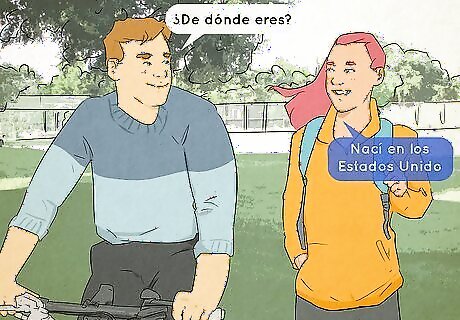
“I was born in…” is another possible response you can use. Like with “Soy de…,” you can name a city, state, or country: “Nací en Palo Alto,” “Nací en California,” “Nací en los Estados Unidos.”
“Soy estadounidense.” (“Soy es-tah-doh-oo-ni-den-say”)

“I am American” (or, any other nationality) is another proper response. Demonyms (adjectives describing nationalities) are sometimes different than you might expect in Spanish, so it might be a good idea to check an online Spanish dictionary if you’re not sure what yours is. Although “Soy Americano/Americana” is commonly used in Spanish to mean that you’re from the United States, try using “estadounidense” if you’re in Latin America. Latin Americans consider themselves to be American as well.
“Soy de... pero vivo en...” ("Soy day...pey-ro vee-vo ehn")
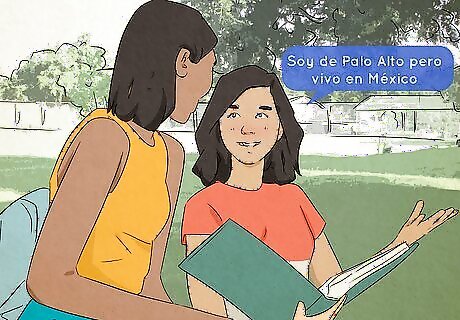
“Pero vivo en” means “but I live in,” and is handy if you don’t live where you’re from. For example, you might say “Soy de Palo Alto pero vivo en México” (“I am from Palo Alto but I live in Mexico”). Details like these can help you explain your background in more detail.
“Nací en... pero soy...” ("Nah-see ehn...pey-ro soy...")
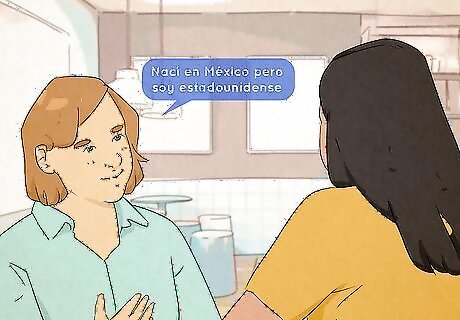
"Pero soy" ("but I am") is useful if your nationality is different from your place of birth. For example, you could say "Nací en México pero soy estadounidense" ("I was born in Mexico but I am American"). By combining some of the phrases that we’ve learned so far, we can get even more specific about our backgrounds. This will help make your Spanish sound even more fluent.
“Nací en...pero también soy...” ("Nah-see ehn...pey-ro tam-bee-ehn soy...")
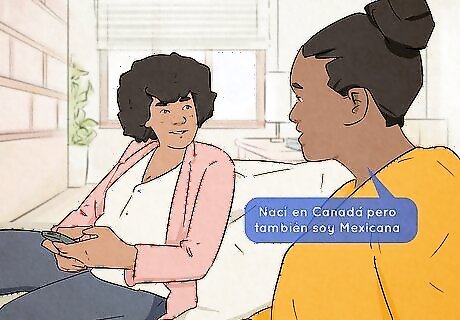
“También” means "also," and is useful if you have two nationalities. It's also a common and good word to know when you’re interacting in a Spanish-speaking context generally. You might say something like, “Nací en Canadá pero también soy Mexicano/Mexicana” (“I was born in Canada but I am also Mexican.”) Spanish adjectives that end in “o” or “a” are gendered, which means they change depending on the gender of the subject. If you’re a man, say “Mexicano,” and if you’re a woman, say “Mexicana.”




















Comments
0 comment